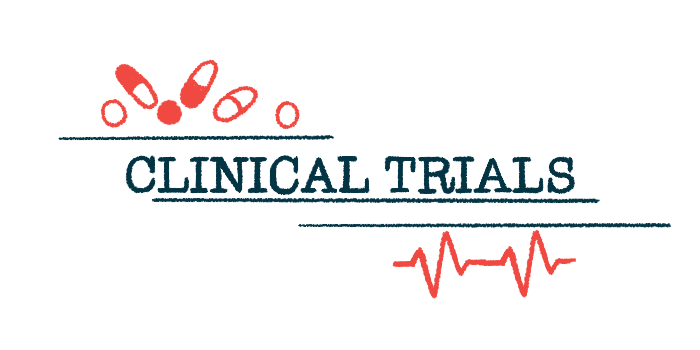Pilot Study Will Test APR-TD011 Wound Spray for EB
Trial enrollment begins soon for Relief Therapeutics' antimicrobial therapy
Written by |

A pilot trial will investigate the effects of antimicrobial spray APR-TD011 on bacterial colonization in the wounds of people with epidermolysis bullosa (EB), the therapy’s developer, Relief Therapeutics, announced.
The treatment’s active ingredient is hypochlorous acid, a chemical with strong and broad-acting antimicrobial properties. It is approved and marketed as Nexodyn for cleansing and moistening acute and chronic skin wounds, cuts, burns and abrasions.
The investigator-initiated trial (NCT05533866) soon will begin enrolling 15 patients, ages 6 months or older, living with junctional EB or dystrophic EB and wounds colonized with Staphylococcus aureus and/or Pseudomonas aeruginosa bacteria.
Findings from the trial may support the further clinical development of APR-TD011, which was granted orphan drug status for EB in 2019. That designation is intended to speed its development toward regulatory approval.
If eventually approved, it would be the first treatment sanctioned to specifically prevent infection in EB wounds.
Amy Paller, MD, chair of the department of Dermatology, Feinberg School of Medicine at Northwestern University, will lead the study, which is being conducted at the Ann & Robert H. Lurie Children’s Hospital of Chicago, Illinois.
“EB is a rare, inherited skin disease characterized by widely distributed, chronic wounds that easily become infected with a risk of sepsis [a life-threatening reaction to an infection] and death,” Paller said in a press release.
“As there is no cure for EB, a crucial element of patient management involves proper and timely wound care. This pilot clinical study will evaluate how the bactericidal activity of this differentiated hypochlorous acid wound spray … could reduce wound [bacterial] colonization, thus improving the microbiome,” Paller added. Microbiome refers to all microbes, such as bacteria, fungi, viruses, and their genes, that naturally live in the body.
The fragile, easily blistered or torn skin that characterizes EB can lead to open wounds that don’t heal easily and can become infected.
Hypochlorous acid is naturally produced by neutrophils in the body in response to infection. Neutrophils are a type of immune cell that serves as the body’s first line of defense against invading pathogens like bacteria.
APR-TD011 is a low pH formulation of the acid developed using the company’s nanotechnology platform, called Techlo. Administered as an easy-to-use spray, APR-TD011 also avoids direct skin contact that can lead to contamination.
The spray, according to Paller, has been shown to kill S. aureus and P. aeruginosa — two types of bacteria that colonize the wounds of EB patients. Relief Therapeutics hopes the treatment will be able to fight infection, promoting wound healing and symptom relief for EB patients.
APR-TD011 safe, well-tolerated
EB patients administered APR-TD011 in a preliminary clinical trial experienced an improvement in skin blistering and tissue repair within two weeks of treatment, according to Relief. The treatment also was found to be safe and well-tolerated.
Participants in the pilot study will be treated with APR-TD011 for eight weeks, and return for follow-up at 12 weeks. The trial’s primary goal is to determine whether bacterial colonization in the wounds of these patients is lowered with treatment.
“This proof-of-concept clinical trial, to be conducted in 15 participants over a 12-week study period, will be most valuable for the swift, effective and efficient execution of Relief’s clinical development plan for APR-TD011,” said Nermeen Varawalla, PhD, chief medical officer of Relief.
Following the 12-week trial, patients will be able to continue using the spray for a six-month period.
Data obtained from the trial will be used to design future studies of APR-TD011’s effects on infection, avoidance of antibiotics, wound healing, and quality of life for EB patients.
“The clinical data from this Investigator Initiated Trial will facilitate the design and conduct of follow-on, multi-center, pivotal clinical trials for future, potential U.S. Food and Drug Administration (FDA) and European Medicines Agency (EMA) approval of APR-TD011 as an effective, convenient, well tolerated, anti-microbial wound management solution for EB,” Varawalla said.






